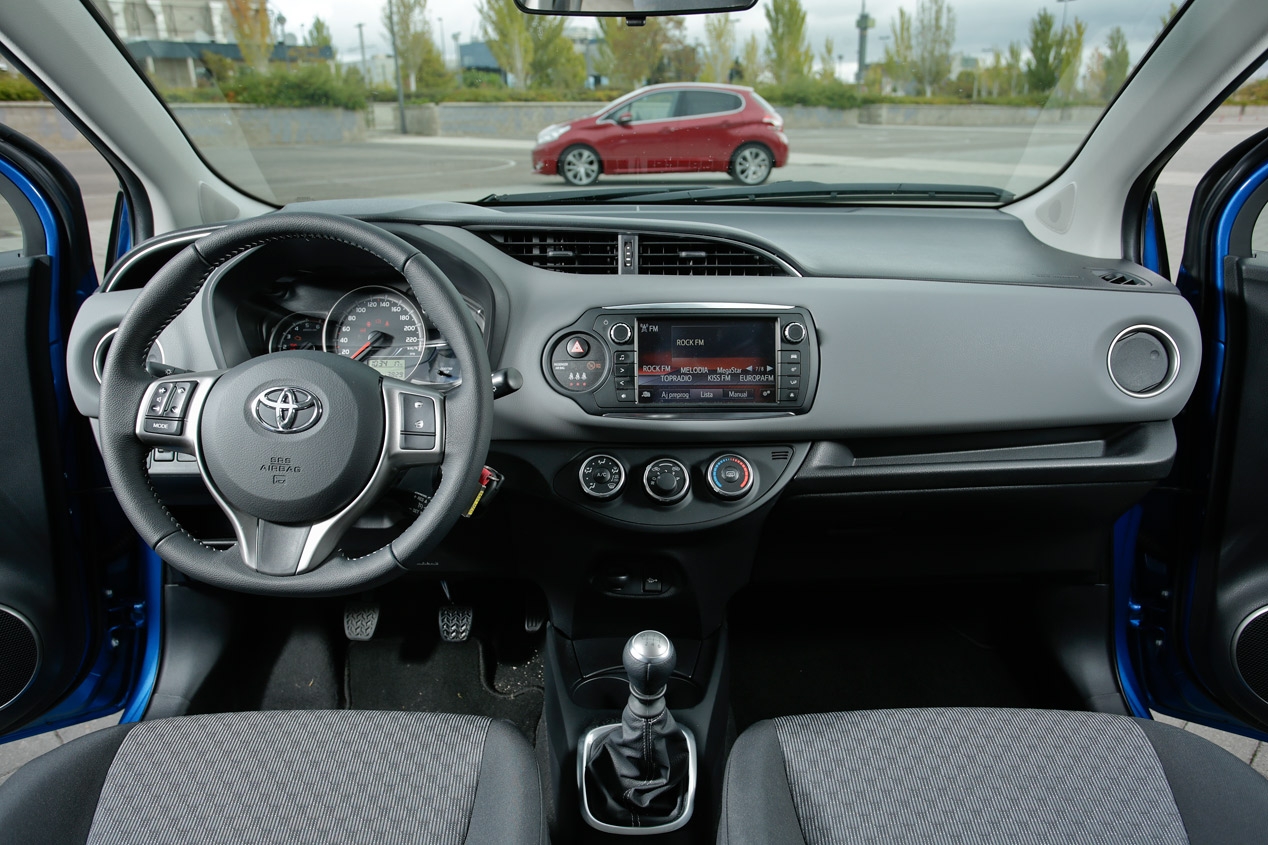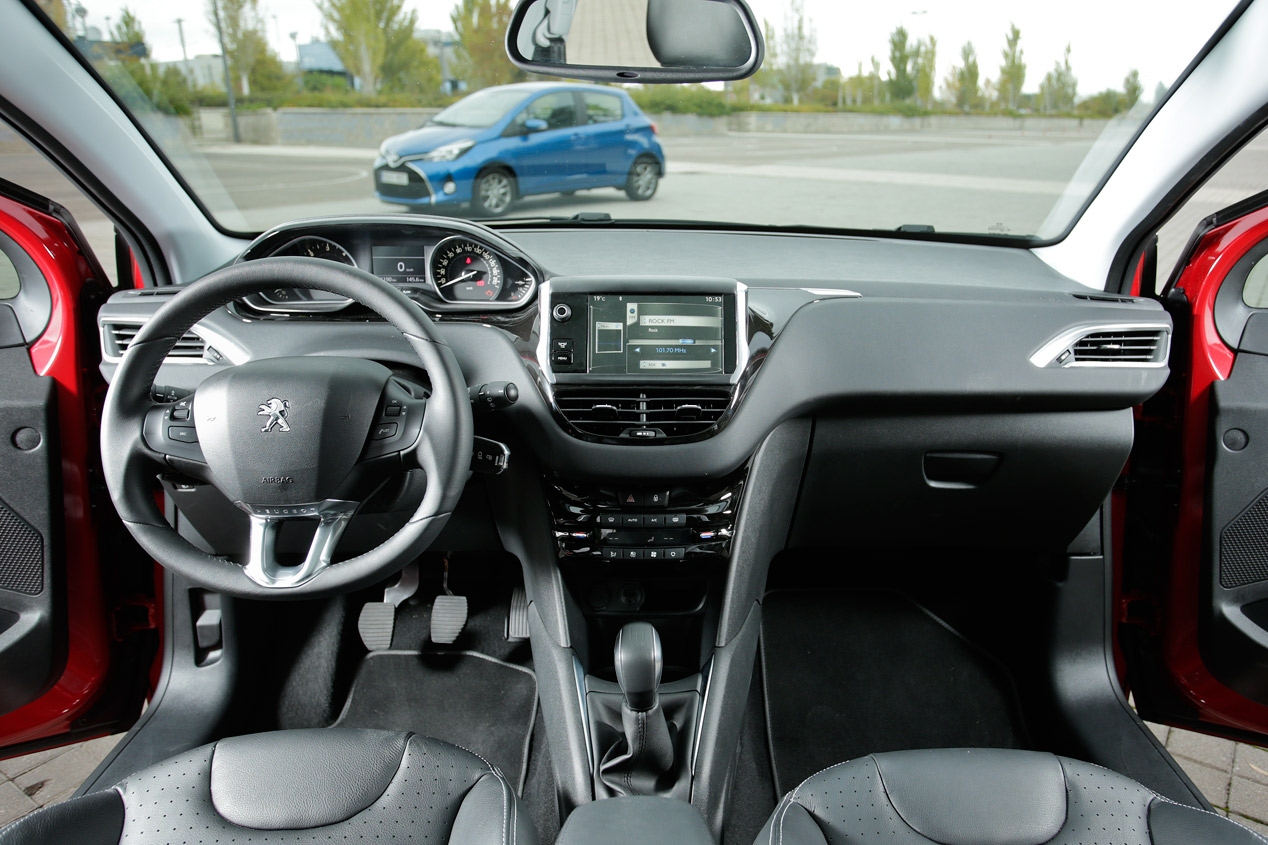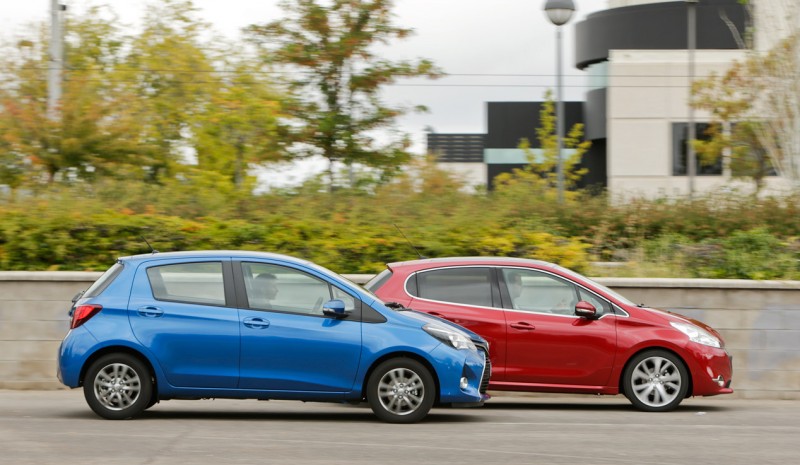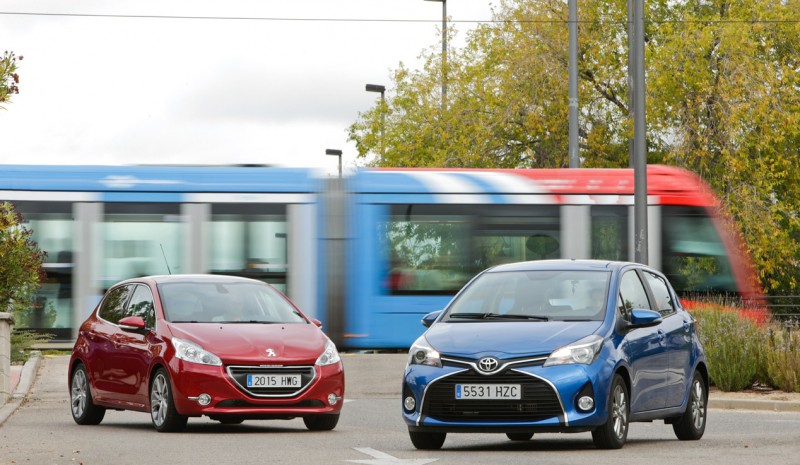Comparison: Peugeot 208 1.6 e-HDi vs Toyota Yaris 1.4 D-4D
Increasingly strong arguments in their favor, the competitive segment B has reached a level of development difficult to overlook. Here are two examples dare everything: Toyota Yaris and Peugeot 208.
Gradually they are eating the compact ground, approaching them for technology and performance. They also consume less, and its starting price is more competitive, so they are a more valid option if you do not need the space and the trunk of his older brothers. Of the two models of this comparison include the high efficiency of its diesel engines, able to standardize CO2 emissions of 95 to 99 g / km, respectively, ie, 3.6 and 3.8 l / 100 km combined cycle. In real life move around 5 liters, but without sacrificing the dynamic solvent.
Moreover, they offer an almost opposite approach, although equally satisfactory results in both cases. If he Peugeot 208 It is proving to be one of the most comprehensive multi-purpose, the Toyota Yaris, what just received an update, It comes with strength to face whatever it takes. One of the main differences is touch offering their mechanics. The Yaris maintains refinement Auris with identical D-4D propeller, and a precise shift actuator, Nevertheless the Peugeot 208 not get here the same softness offered by the 308. In addition it may be somewhat abrupt acceleration and stop accelerating, shown something rough and noticeable vibrations in the steering wheel and pedals, what there is also a lower engine sound insulation, whose sound not just be nice. Moreover, the shift lever has excessive longitudinal travel and less precise touch, something that does not match sportsmanship transmitting its small steering wheel and quick steering, nor the tuning bright frame.
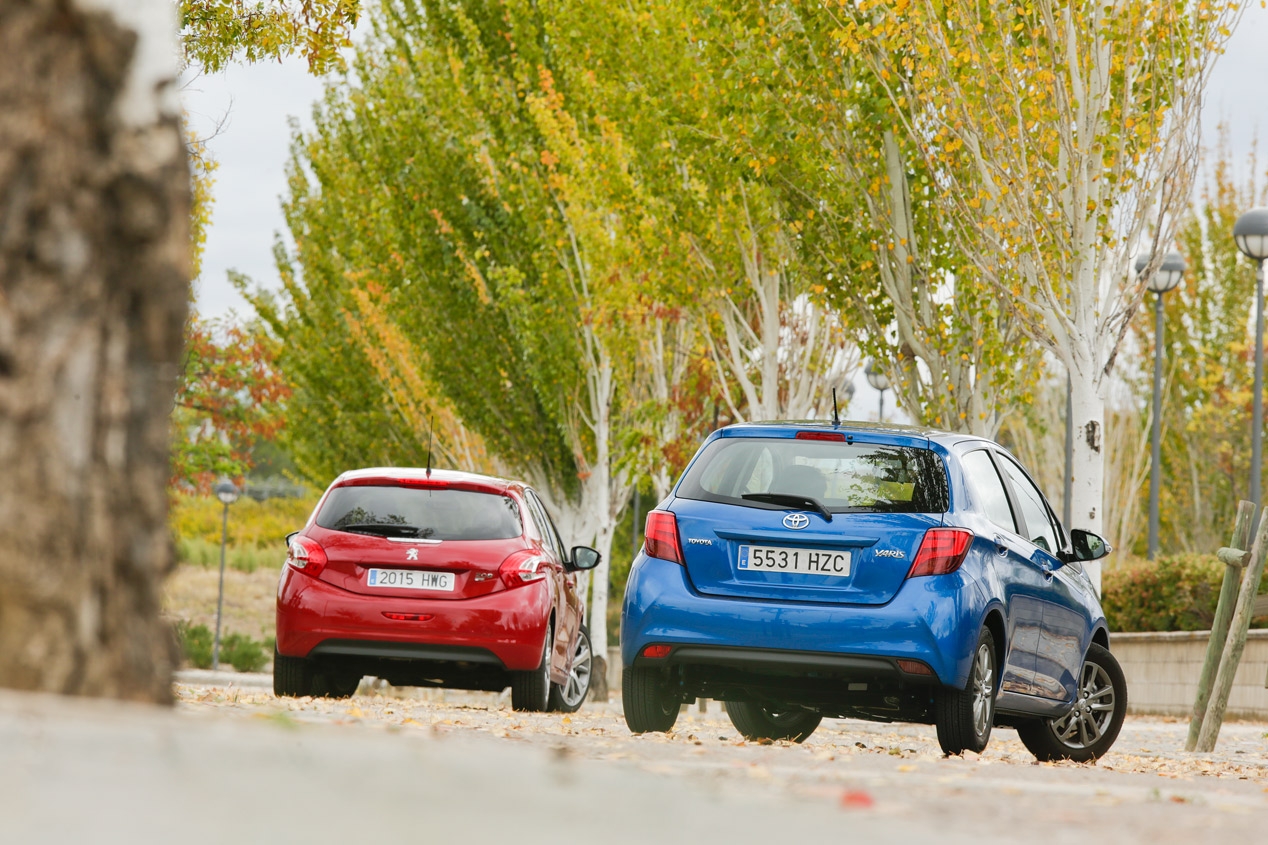
The engine Toyota, meanwhile, it has a less strong lower area, which has always characterized this 1.4 D-4D in past generations. However, in the current Yaris things they have greatly improved thanks to VGT and, without being so strong as his rival a few laps, it is also usable. However, to have all his strength just wait until 2,100 rpm, when featured a "kick" the turbo not inconsiderable. It is perhaps this way to deliver power which facilitates achieve even lower consumption than the Peugeot 208 without too much involvement on our part, simply not exceeding 2,100 rpm cited. Highway Technical Center has achieved 5.3 l / 100 km in city, opposite the Peugeot 5.9, and that the latter has a Stop / Start system is a luxury -and more in its segment- then stops the engine when the speed drops from 23 km / h and insert neutral, what we It allows "to play" almost like a hybrid under certain circumstances. Both stop and start occur instantly (even to change his mind at the last minute) and total absence of vibration, so you do not get to ask any questions or generate ourself an iota of stress, unlike what with any other competitors which, either slowly or decline of comfort, on more than one occasion we are going through your head off the system.
